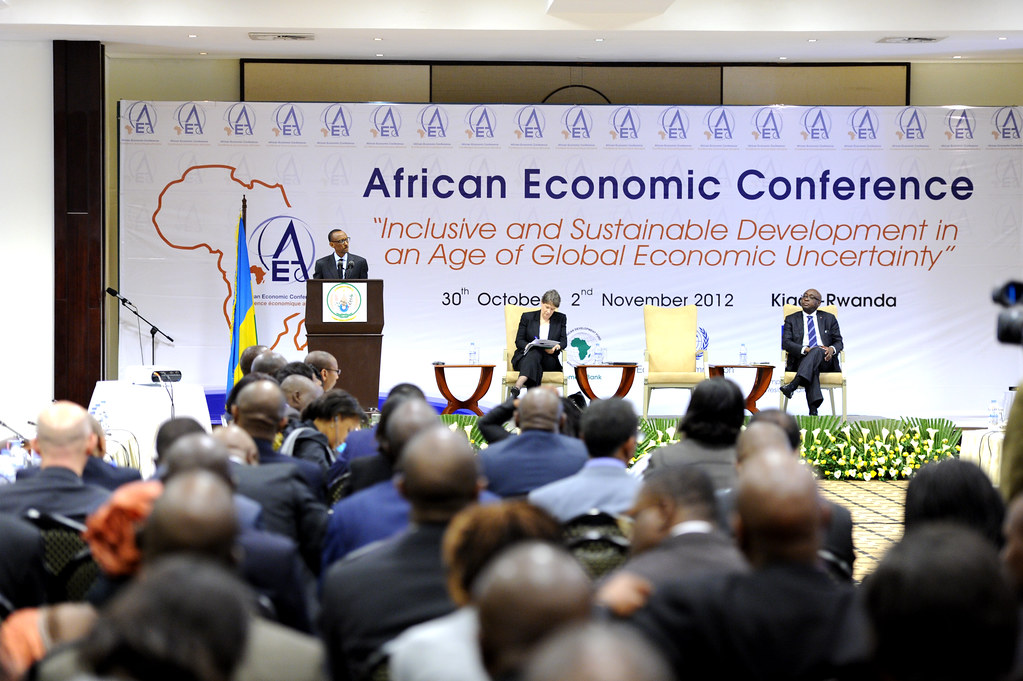
The Atlantic Slave trade and colonialism has undeniably had devastating effects on African society, through forced labour and brutality, subjecting African slaves and nationals to dehumanizing environments of violence, torture, and forced relocation. Since the end of the colonial era, conflicts and internal shocks alongside secular low growth and pervasive inequities appear to overshadow the economies of African countries. Currently there are reportedly at least 15 armed conflicts in Africa. For example, this week there have been news headlines about government forces clashing with local militia in the historic town of Lalibela in Ethiopia, and thousands of people being forced to flee the Sudanese region of West Dafur amid fears of ethnic cleansing. Whilst some critics blame the poor economic conditions on political issues like high levels of corruption, and frequent extreme weather and health challenges, academics highlight great potential for African economies if they are able to overcome the apparent low political equilibrium.
This article aims to bring light to some potential mechanisms of institutional persistence deriving from colonial abuse inspired by papers by Nathan Nunn, 2008[1] and his research paper finding countries from which the most slaves had been taken (between 1400 and 1900) were today the poorest in Africa (lowest average real per capita GDP measured in 2000).
High Levels of Mistrust:
Trust, both for the state and individuals (interpersonal), is essential for economic development. The IMF say that governments require trust to effectively implement policies, public services, to collect taxes and high-trusting societies are more likely to collaborate in trade, innovation, and entrepreneurship.
Nunn and Wantchekon’s 2011 paper “The Slave Trade and Origins of Mistrust in Africa” argues that High level individuals whose ancestors were heavily raided during the slave trade are less trusting today. They argue that the Slave trade caused a culture of mistrust to develop within Africa as citizens and local law enforcement were incentivized to kidnap, trick, and sell each other into slavery for economic gain which further affected interpersonal and social relationships. Whilst initially, slaves were captured primarily through state organized raids and warfare, the trade progressed, leading to an “environment of ubiquitous insecurity”. This culture of mistrust has also negatively affected the cooperation of different ethnic groups for example the Hutu–Tutsi discord in Rwanda, and Burundi with Hutu having a history of subjugation to forced labour by Tutsi chiefs. Blouin finds that these ethnic groups are less likely to cooperate today signify the persistence of mistrust and cooperation.
Why do these institutions remain? Mechanisms of persistence:
A culture of low levels of trust and norms of lower levels of cooperation from their parent and older relatives is theorized to be inherited and passed on through shared perspectives and intentional exclusion. Another mechanism is that as individuals make political choices based on these lower levels of trust and norms of cooperation result in poor quality domestic institutions. These include norms of low civic engagement, high corruption, and vote-buying. This subsequently leads to weaker enforcements and poor behaviour which further leads to lower levels of trust and cooperation. Consequently, citizens are not incentivised to save and invest (insecure property rights and a weak state) and politicians are not incentivised to provide public goods leading to poor economic growth.
Extractive institutions created by colonizers leading to absolutist and patrimonial polities:
Throughout colonialism, colonizers encouraged private companies to use extreme violence and indirect rule (ruling through African leaders known as ‘village chiefs’). Private companies extracted natural resources by which led to the persistence of less accountable and more despotic leaders. One example of this was Belgian colonizers (under rule of King Leopold II) in Congo between 1885 and 1908 who went to extreme measures to extract large amounts of rubber and ivory leading to an estimated 10 million deaths. Lowes and Montero found African regions exposed to this indirect rule were found to have significantly worse education, wealth, and health outcomes due to lack of investment in public services like healthcare and education facilities.
Health and education are described as the “most crucial factors that determine a country’s overall growth and development”. A well-educated workforce is essential for innovation and productivity as it helps individuals acquire the skills and knowledge necessary to succeed in the modern economy. A well-educated population is also required to participate in the workforce and contribute to economic growth. Healthcare is critical for economic growth and development as a healthy population is more productive and is able to participate in the workforce and access to a quality healthcare is essential for reducing the burden of disease and improving overall health outcomes. Furthermore, lack of trust and fear of ruling bodies further worsens social capital to obstruct economic growth further perpetuating in a vicious cycle of lack of trust in government and subsequent poor creation and enforcement of public services imperative for economic growth.
In conclusion, this article aims to reflect on Joshua Settler’s statement whether “the imposition colonialism on Africa altered its history forever…modes of thought, patterns of cultural of development, and ways of life were forever impacted by the change in political structure brought about by Colonialism”. Recent studies seem to agree with this statement, highlighting the atrocities of colonialism has led to vicious cycles of violence, poverty, and authoritarianism that are playing out to this day. Whilst culture and norms can change, African countries have clearly undergone severe barriers to economic development, which alongside the current economic challenges African nations face, suggest the current economic and political climate of the formerly colonized should not be ignored by former colonialist countries.
Recommended articles:
https://cepr.org/voxeu/columns/understanding-long-run-effects-africas-slave-trades
[1] Nunn, Nathan. “The long-term effects of Africa’s slave trades.” The Quarterly Journal of Economics 123, no. 1 (2008): 139-176.
Image: Paul Kagame, 2012 // CC BY-NC-ND 2.0



Average Rating